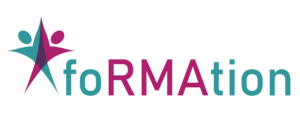Lesson 1: Introduction to science - what distinguishes scientific knowledge from other types of knowledge?
Learning Outcomes
- The student is able to distinguish and describe different approaches in scientific theories and epistemological trends, and their scientific historical background (hermeneutical vs scientific, facts and observation, experimentation and falsificationism, induction vs. deduction).
- The student is committed to perceiving and accepting the diversity of cultural and social context in research systems and practices.
- The student is committed to understanding different research methods and finding consensus in an interdisciplinary research setting.
Lesson 2: Introduction to research design, research methods and research life cycle
Learning Outcomes
- The student is able to distinguish and describe types and specificities (aims, advantages, limits, appropriateness to certain disciplines) of main research methods applicable to different scientific areas (e.g. observation, survey, interview, focus group, experiments, etc).
- The student is able to understand the research project lifecycle and the role of RMAs within it.
- The student is able to apply the stages of the research project lifecycle to a research plan, identifying the key questions to answer at each stage.
- The student is able to recognise and integrate the motivations, expectations and roles of a researcher, and other professions linked to the research activity.
- The student is able to construct logical arguments to present a research idea.
- The student is commited to finding a balance between assertiveness and cooperation when involved in research teamwork as a leader or team member.
- The student is committed perceiving and accepting the diversity of cultural and social context of research systems and practices.
- The student is commited to open to understanding different research methods and finding consensus in an interdisciplinary research setting.
Lesson 3: Research integrity and ethical conduct
See the introductory video
Complete the exercise
Learning Outcomes
- The student is able to understand the research project lifecycle and the role of RMAs within it.
- The students is able to discuss, formulate arguments and critically examine his/her beliefs in the context of real cases of scientific integrity, responsible research, and ethical dilemmas that may emerge in a research project.
- The student is commited to perceiving and accepting the diversity of cultural and social context of research systems and practices.
Lesson 4: RMAs as Professionals at the Interface of Science
See the introductory video
Complete the exercise
Learning Outcomes
- The student is able to identify the differences between a research design/plan and a research proposal.
- The student is able to recognise and integrate the motivations, expectations and roles of a researcher, and other professions linked to the research activity.
- The student is able to discuss, formulate arguments and critically examine his/her beliefs in the context of real cases of scientific integrity, responsible research, and ethical dilemmas that may emerge in a research project.
- The student is committed to finding a balance between assertiveness and cooperation when involved in research teamwork as a leader or team member.
Lesson 5: Oral presentations
Learning Outcomes
- The student is able to elaborate and design a research plan adapted to a different research disciplines (social, economic, natural sciences).
- The student is committed to finding a balance between assertiveness and cooperation when involved in research teamwork as a leader or team member.
- The student is commited to perceiving and accepting the diversity of cultural and social context of research systems and practices.
- The student is commited to understanding different research methods and finding consensus in an interdisciplinary research setting.
- The student is commited to understanding the interests and aspects of different stakeholders and considering them while engaging in the research process.

